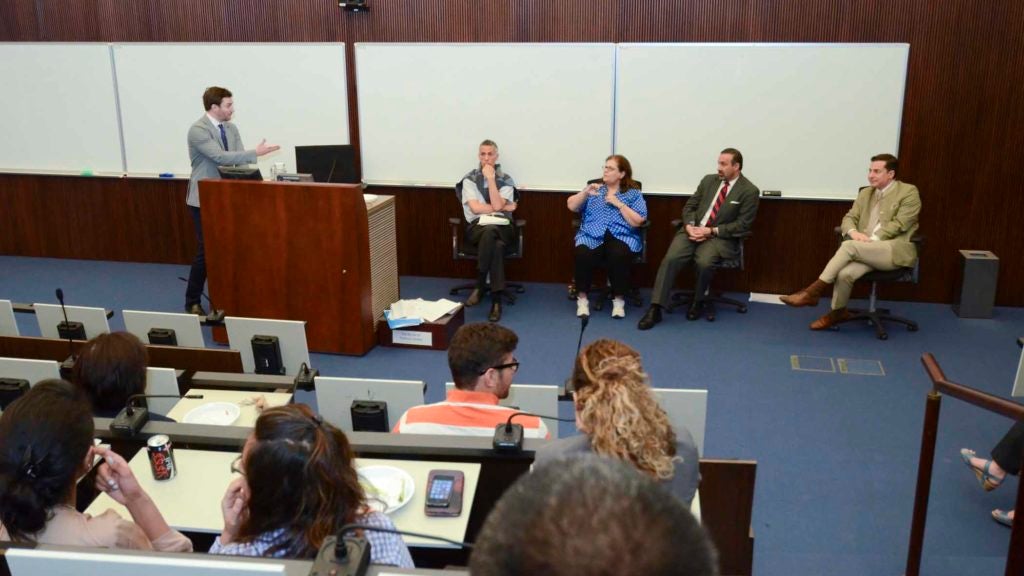Georgetown Students Take on the Arab Spring

The term ‘Arab Spring’ has been examined and scrutinized countless times following the 2011 uprisings in Tunisia that triggered a wave of unrest throughout the region. For over 70 Georgetown students, which included students of the Global History of Revolution class, the question of the Arab Spring took center stage at a special seminar featuring a panel of GU-Q faculty recently.
Taking part in the lively discussion were Professors Amira Sonbol, Mark Farha, Mohamed Zayani, and Mehran Kamrava, the Director of the Center for International and Regional Studies at GU-Q. Students posed a variety of questions to the panel of experts in history and contemporary affairs, and drew parallels to the conflicts and underlying reasons for these conflicts, in the history of global movements.
One important question asked, and debated amongst the panel, was the definition of revolution, and the reasons they happen. Amira Sonbol responded that “We normally think of revolution as a sudden change that occurs via an uprising. But real revolutions don’t happen, except as a long term series of change.” She pointed to the long history of class conflict and revolutions, saying “there’s no question that in Tunis, Egypt, and Syria, people were asking for a change in property, for a change in the way money and land is distributed. Revolution at its heart, is about class. People simply want to have the promise of modernity, of participation.”
Professor Farha addressed questions about the factors that trigger revolutions, and invoked the demographic youth bulge combined with the rise in commodity prices, as a main reason. “Economics are the primary factor. It’s the bread, and then it’s the freedom. This is what the surveys tell us,” he said. Dr. Kamrava answered another student’s question regarding the parallels to the French Revolution, saying “Not all revolutions have to be violent, but can involve dynamics of negotiations and bargaining. Societies can dictate the pace.”
But what the Education City students were particularly interested in discussing is how the role of media-including popular social media platforms like Twitter and Facebook-contributed to the uprisings, if at all. Arab media expert Mohamed Zayani presented two views in response, saying “on one end of the spectrum are those who believe technology was quick to champion the cause of the uprisings, but on the other were people skeptical of the claims, pointing out that revolutions have been taking place without technology, such as during the French revolution, with no access to the internet or Twitter.”
Instead of finding direct linkages, Zayani argues that questions should focus on the specific ways media facilitates or alters the nature of engagement, and how this engagement meets the needs of the groups in turmoil.
Course teacher and panel organizer Professor Edward Kolla commented on the enthusiasm of the students’ participation, saying “I was impressed by the sophistication of the students’ questions to the faculty panel. It showed they had really reflected on the nature of political violence and political change and were applying what they’d learned to the world around them. This is precisely what we aim for as teachers: not necessarily for students to remember particular facts or dates, but instead,for them to use the tools of critical analysis and inquiry that they learn in the class, in their everyday lives.”